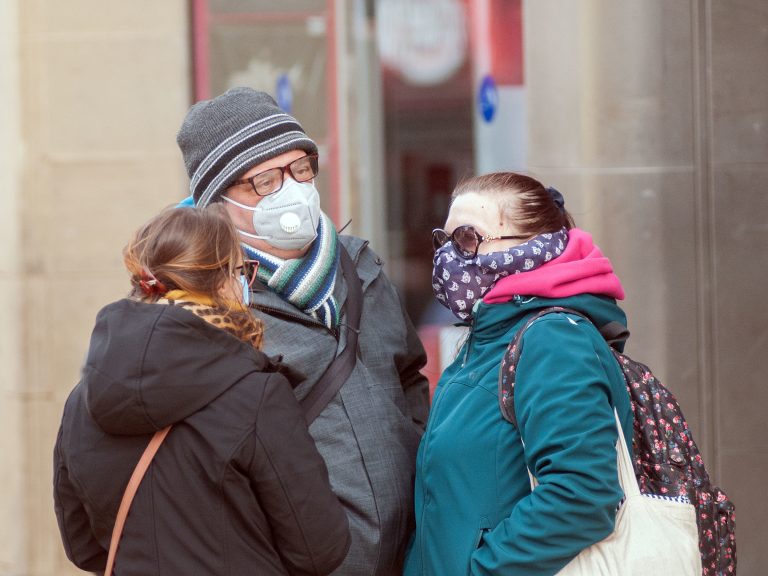Specialists in coronavirus mutations have detected the coronavirus E484K mutation in the SARS-CoV-2 B.1.1.7 variant in some United Kingdom areas (UK). This mutation was previously found in P.1 and B.1.351 variants, but has not appeared in the B.1.1.7 variant until recently.
The Centers for Disease Control and Prevention (CDC) states that B.1.1.7 is a more highly transmissible SARS-CoV-2 variant that was first reported in the UK in December 2020 and has since spread to over 30 countries.
B.1.1.7 is already the dominant circulating SARS-CoV-2 variant in England and may become the predominant variant in the U.S. by March 2021.
Specialists reported approximately 541 cases in 33 U.S. states as of February 2, 2021. In contrast, scientists first identified the P.1 variant in January 2021 in people traveling from Brazil to Japan, with two U.S. cases reported in Minnesota.
The B.1.351 coronavirus variant emerged independently of B.1.1.7
The B.1.351 variant has spread to multiple countries on the African continent, with three U.S. cases reported in South Carolina and Maryland.
Success
You are now signed up for our newsletter
Success
Check your email to complete sign up
While the differences in clinical outcomes with SARS-CoV-2 variants are unknown, the CDC cautions that increased transmission leads to more cases, a higher burden on the health care system, and more resulting deaths. According to the technical briefing by Public Health England updated on January 26, 2021, “The spike protein mutation E484K… has been detected in 11 B.1.1.7 sequences.”
A total of 214,159 sequences have been analyzed, with preliminary data suggesting “more than one acquisition event.” BBC News reported more cases in the South West of England. In the Liverpool area, experts detected an additional 32 cases of the original coronavirus’s E484K mutation.

Are vaccines effective against these new coronavirus variants?
Given that the Moderna and Pfizer-BioNTech coronavirus vaccines were designed and tested against earlier variants, their effectiveness against new variants is unproven and a subject of ongoing research.
A Moderna press release published on January 25, 2021, covered findings from a non-peer-reviewed study by scientists from Moderna, the National Institutes of Health (NIH), the National Institute of Allergy and Infectious Diseases (NIAID), and the Vaccine Research Center (VRC). The press release states, “A six-fold reduction in neutralizing titers were observed with the B.1.351 variant relative to prior variants. Despite this reduction, neutralizing titer levels with B.1.351 remain above levels that are expected to be protective.” The article continues, “no significant impact on neutralization was observed from either the full set of mutations found in the B.1.1.7 variant or from specific key mutations of concern.”
However, while the Moderna study assessed the vaccine’s ability to elicit neutralizing antibodies against several coronavirus variants, B.1.1.7 variants with the E484K mutation alone or in combination with other mutations were not evaluated
Assessing the B.1.1.7 variant with the E484K mutation is critical. According to the Moderna study, at least five studies published within the last year have shown that the B.1.351 variant with the E484K mutation “confers resistance to SARS-CoV-2 neutralizing antibodies. It will potentially limit the therapeutic effectiveness of monoclonal antibody therapies.”

Concerning the Pfizer-BioNTech vaccine, a preliminary, not yet peer-reviewed study conducted by scientists in the UK, Switzerland, USA, Italy, Mexico, and South Africa evaluated the escape of the SARS-CoV-2 B.1.1.7 variant from the Pfizer-BioNTech mRNA vaccine-elicited neutralizing antibodies. The authors report, “Introduction of the E484K mutation in a B.1.1.7 background to reflect newly emerging viruses in the UK led to a more substantial loss of neutralizing activity by vaccine-elicited antibodies over that conferred by the B.1.1.7 mutations alone. Further work is needed to establish the impact of these observations on protective vaccine efficacy in the context of the evolving B.1.1.7 lineage.”
In other words, the E484K mutation in B.1.1.7 variants may substantially decrease the effectiveness of Pfizer-BioNTech vaccine-elicited antibodies. Studies indicate that antibody responses were only assessed three weeks after vaccination with a single dose.
Antibody levels would theoretically be higher after a second dose of the vaccine. Nevertheless, this and other similar vaccine studies highlight the importance of continued research into SARS-CoV-2 variants, especially by independent scientists who do not have a conflict of interest with the vaccine industry.
Follow us onTwitter or subscribe to our email list

















